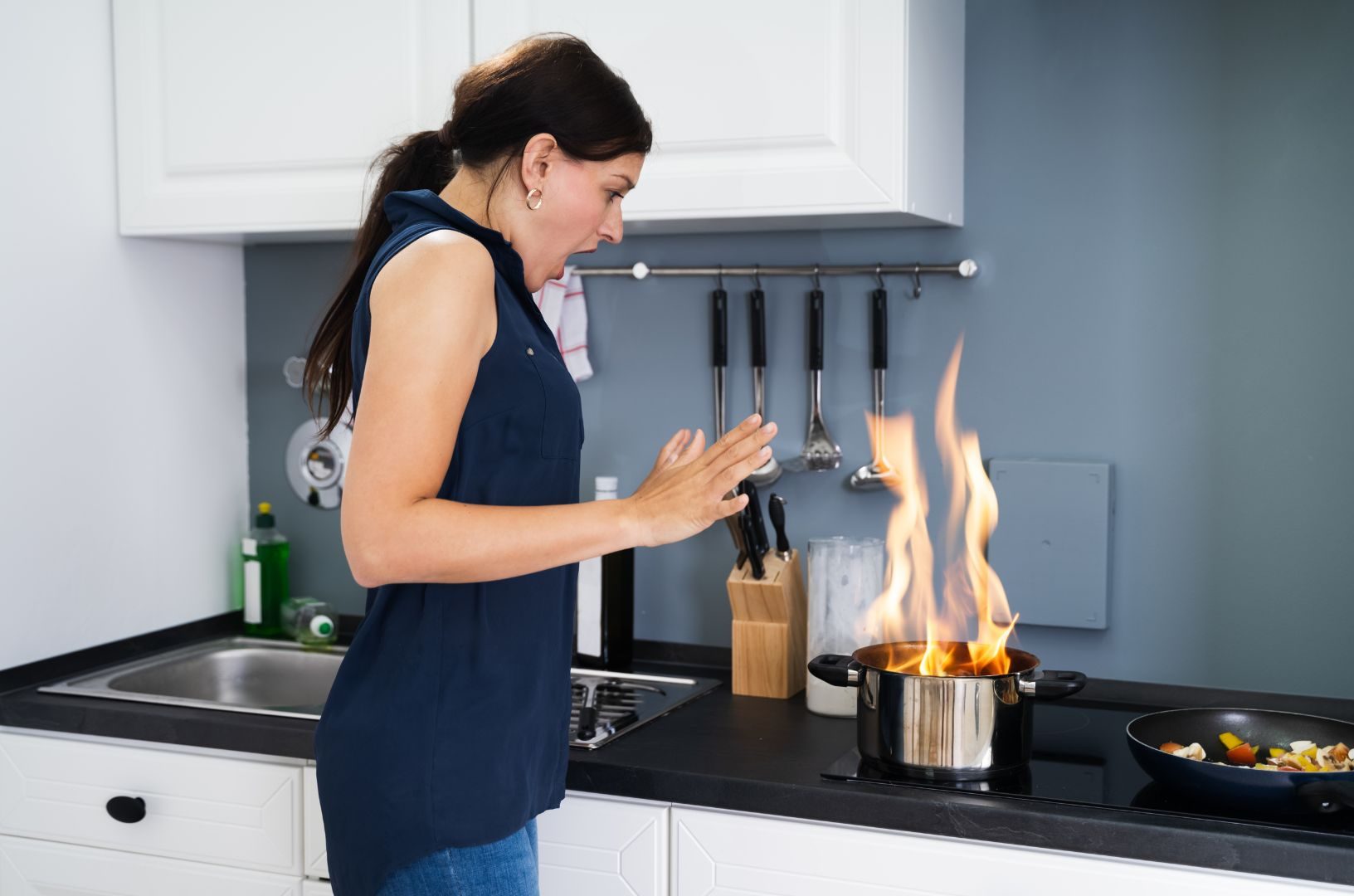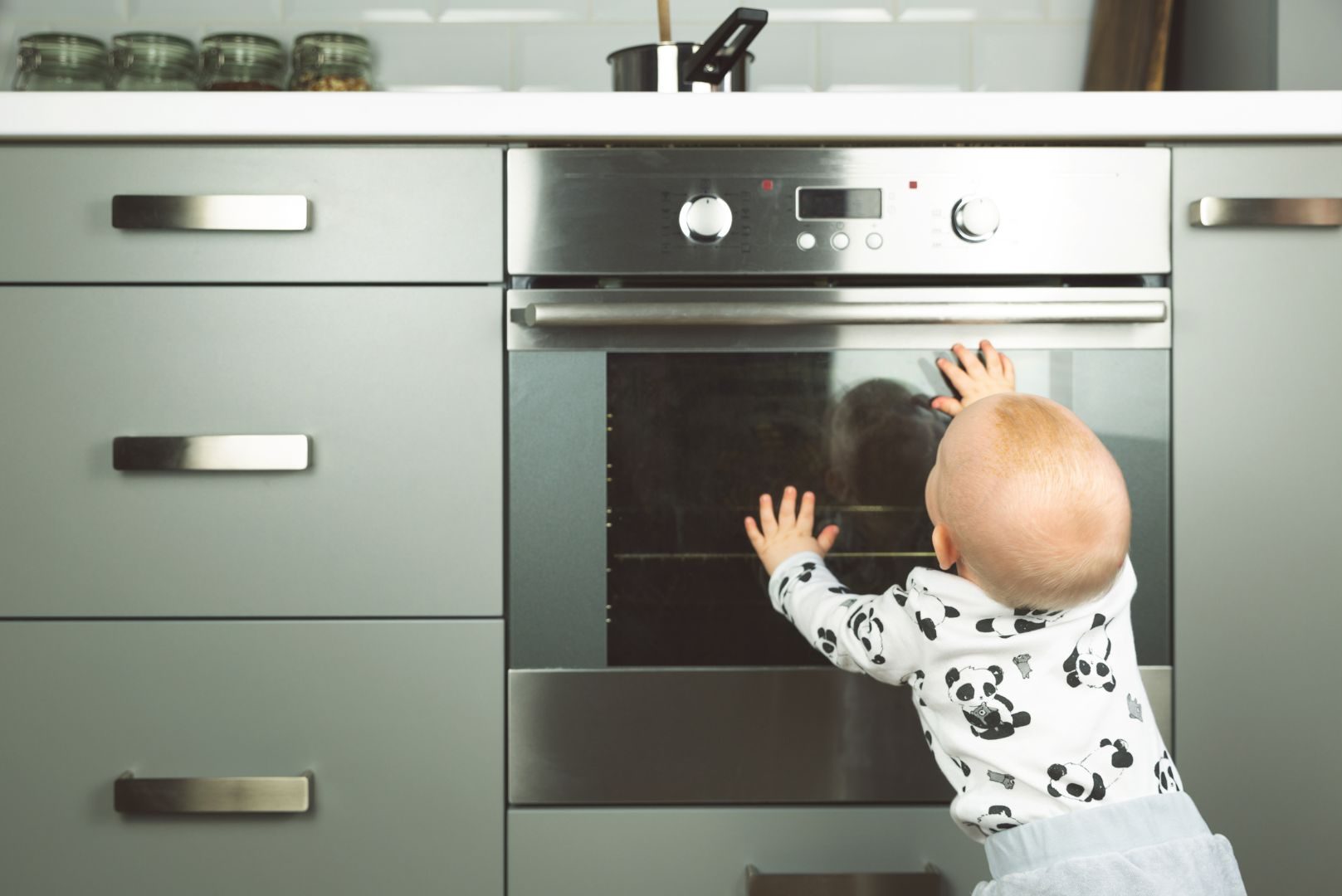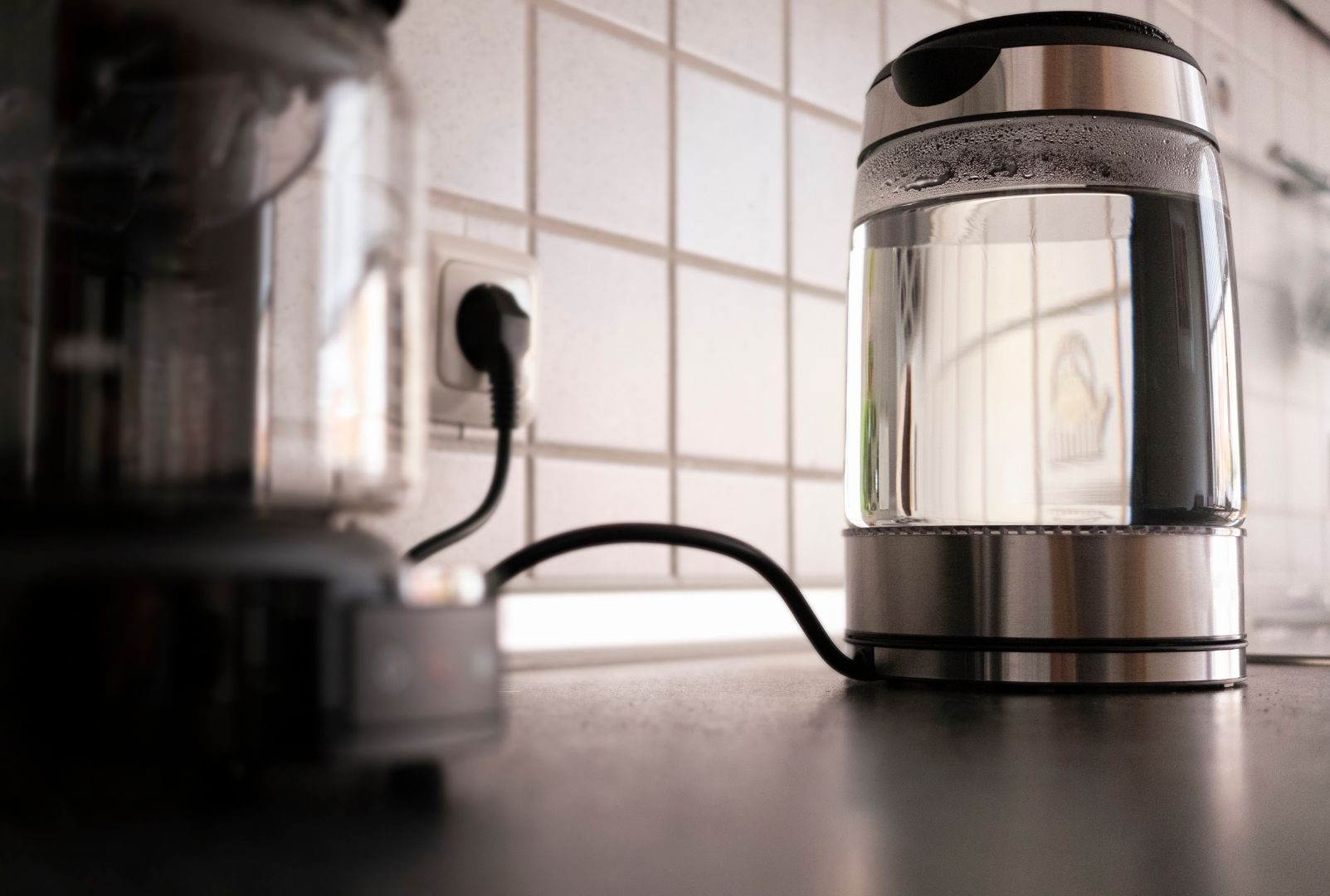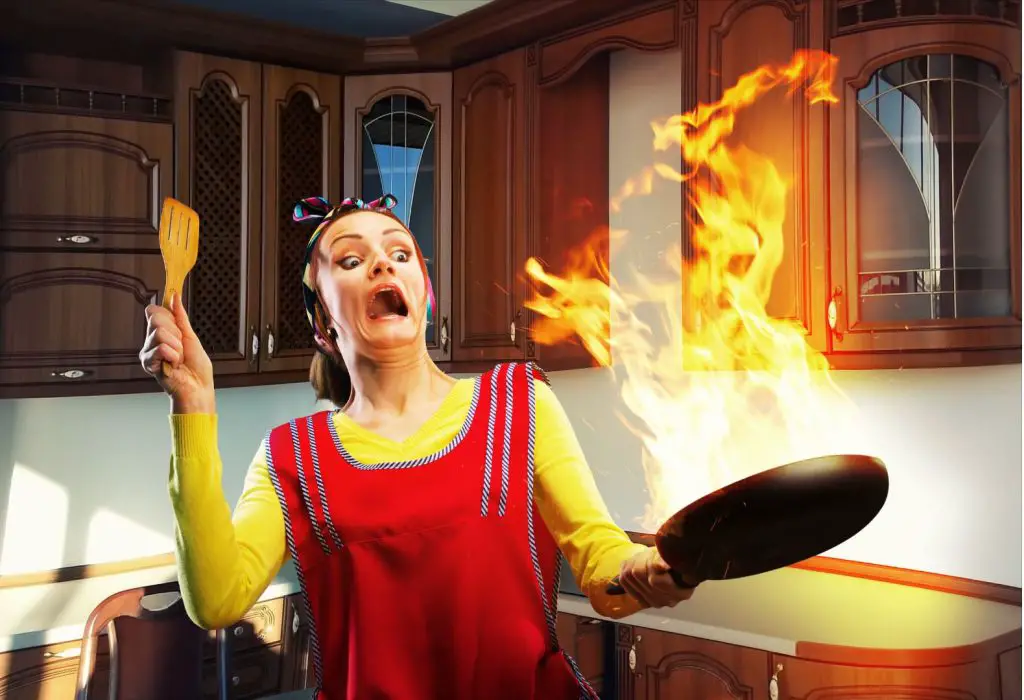The kitchen is the area where most of the house fires start. The primary cause of fire breakouts is cooking fires. Practicing safe cooking can help keep your family members safe. After all, “Prevention is better than cure,” isn’t it? It completely applies to our kitchen. We can avoid many kitchen accidents if we follow simple things.
In this article, we have covered all the key points for fire safety in the kitchen including deep fat fryer fires, frying pan fires, microwave fires, and smoke alarms. What you should do if your clothes catch fire is also mentioned here. Stay tuned!
What are the Main Reasons of Fire in the Kitchen?
- Deep fat frying pan when filled to the top.
- Distractions: People often leave the kitchen and forget to turn off the appliances. For this, you need to be alert while cooking. Be attentive while cooking and utilize a cooking timer.
- Alcohol: Drinking alcohol and cooking is a catastrophic mix. Avoid it.
Safest Way to Use a Deep-Frying Pan:

The best way is to get an electric, thermostat-controlled deep fat frying pan as it doesn’t overheat. Putting food in the oil without drying it may cause oil sprinkling. If you’re using gas to cook, always turn off the flame if the oil is too hot before adding the food.
Frying Pan Fires:
You should limit the amount of oil in frying pans, just like you do with deep fat frying pans. Also, pay attention while cooking.
If your frying pan catches fire:
- Turn off the heat and let it cool
- Leave the pan still and don’t move.
- If you have a fire blanket carefully place it over the pan.
- Do not throw water or use a fire extinguisher as it can spread the fire further.
- If necessary, leave the place and close the door.
- Get everyone out and call 911.
What to Do if Your Microwave Catches Fire?
If your microwave catches fire, leave the room immediately and close the door. Get everybody out of the house and call 911.
Practice Safe Cooking:
Just follow the kitchen fire safety tips mentioned above and keep your home and family safe.

- Never leave your stove unattended: Stay in the kitchen when frying, grilling, or boiling food. When leaving the kitchen for urgent work, turn off the stove.
- Keep your kitchen top clean from combustible items: Avoid items that could catch fire, such as packaged food, oven mitts, towels, and oils.
- Create a kid-free zone: Keep your children/pets away from the kitchen slab. It is recommended to maintain a distance of at least three feet from the stove and where hot food is cooked.
- Keep pot handles turned inwards: Children often get burned due to hot food by bumping into the pots and grabbing them.
- Keep a fire extinguisher handy: Make sure you know how to use a fire extinguisher and keep it nearby.
- Keep cooking equipment clean: Grease on the stovetop, crumbs in the toaster, filth in the chimney, and excess dust nearby is dangerous as they may lead to fire breakouts.
- Wear short and tight-fitted clothes: Unfitted clothing may catch fire easily if it comes in contact with the stove.
- Don’t throw hot grease in the garbage: Let the grease cool before disposing of it. Never pour oil into the drain.
- Avoid cooking if you are drunk or sleepy. Do not use kitchen appliances if you have consumed alcohol or feeling sleepy.
- Install the right smoke alarms: Smoke alarms are required in every room but don’t put them too close to the kitchen. If you cannot avoid installing smoke alarms near the kitchen, choose photoelectric alarms as they are less prone to false alarms.
- Make sure appliances are CSA-approved: CSA-approved appliances are tested for shocks and fire hazards. Always look for CSA approved seal on the packet.
Electrical Safety in the Kitchen:

Never overload the sockets, use only one plug in one socket. Make sure you use a fused adapter if there is no other option and remember that the total output should not exceed 13 amps. Turn off electrical appliances like a chimney, microwave, oven, or electric stove when not in use. Keep electrical leads and items away from water and heat flames.
What if Your Clothes Catch Fire?
In case of an emergency, there is no time to read instructions. It is important to use fire extinguishers and fire blankets correctly. If your clothes catch fire, immediately lie down and roll to cut off the fire.
- Get down, get low and get out. When there is smoke, it is best to lie on your knees or chest and crawl to the nearest exit as soon as possible.
- Close the doors to stop the fire from spreading. Shout and warn others about the fire.
- Call 911. Wait for the fire safety personnel to arrive.
Conclusion:
Fire safety in the kitchen is simple. It takes just a few extra efforts to ensure a fire accident doesn’t occur. We should not be a victim of such an accident that can be prevented.

